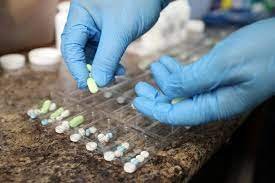Advancements in technological solutions have raised expectations from pharmaceutical and bioanalytical companies for delivering more effective and safe drugs. It is increasingly demanding to translate complex biomedical information into safe and effective drug products. Data supports these issues showing that approximately 8% of candidate drugs pass from the preclinical stage to phase one clinical trial.
This low success rate is due to a lack of safe and effective drugs testing and reliable biomarkers. It also comes down to the narrow therapeutic window and pharmacogenetic heterogeneity in individuals. The primary goal of any drug discovery and development project is to develop a drug product with maximum efficacy and minimum side effects. Even when side effects are observed, they should be identified early during the clinical trial.
The secondary goal is to develop precise medicines and deliver them based on disease type or therapeutic response. Biomarkers are promising solutions for the delivery of all pharmaceutical goals.
Let us focus on biomarker analysis that can influence the drug development process.
Biomarker Approaches in Drug Development
A thorough biomarker validation ensures that it can help diagnose and monitor diseases and therapeutic responses among the patient population. Biomarkers can guide drug developers to develop effective and safer therapeutics for chronic conditions.
Although biomarkers have been impactful in drug discovery and development, they are still quite challenging in disease-specific approaches. Recent technological advances in multi-omics approaches, coupled with biostatistics and bioinformatics, have helped accelerate biomarker development for chronic diseases.
Researchers must first monitor and understand the molecular interactions underlying disease mechanisms and disease progression to develop precision medicine. These data should be available before, during, and after implementing therapeutic strategies.
Biomarkers can help assess this information and translate them into efficient drug development supporting data. Most biomarker CROs are ready with tailored solutions to help bioanalytical companies meet the increased demands for robust and validated biomarkers.
As each individual exhibits different pharmaco-genetic drug responses, reliable and robust biomarkers are increasingly needed for human diseases like inflammation, cancer, and neurodegenerative diseases. Biomarkers are fundamentally solid tools that can be used in fundamental research and clinical and preclinical research. They are particularly beneficial in predicting phenotypical and molecular alterations.
Biomarkers are widely used to stratify patients and evaluate drug responses across populations.
What’s Next for Biomarkers in Drug Development?
With the advances in biomarker assay development and validation, biomarkers are still slow when used in drug development and clinical research. Studies for clinical diagnosis through biomarkers have also shown poor results. Such poor results are partly due to the inefficiency of demonstrating robust clinical endpoints to therapeutic outcomes.
Insufficient understanding of immune systems and their modulation in animal studies is poor biomarker development. Biomarker services willing to accelerate the development of biomarker assays should focus more on identifying reliable and robust biomarkers.
The need for developments in biomarker technology has never been more important. Drug development has never been more prudent and precise and all this is down to the developments in biomarker technology.
Hi! I am Shweta Dutta. I am a writer that enjoys creating beautiful blogs that complement unique and great work.

